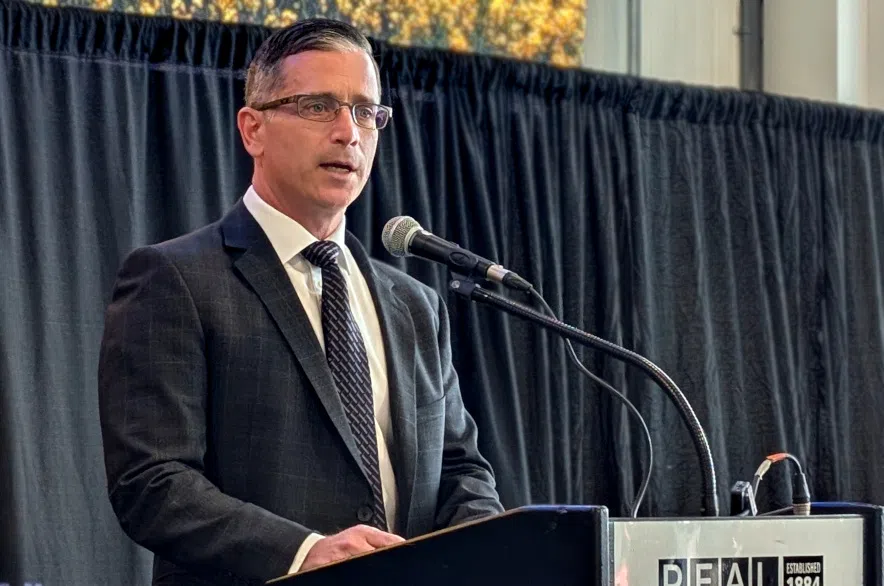As Saskatchewan farmers work this week to get their crops off the field, many are getting set to send their hard work out into an unsure market.
China is the largest export market for Canadian canola meal and oil, and Kyle Jeworski, CEO of Bunge Canada, said it’s difficult to lose as China levies its tariffs on Canadian products.
Read more:
- Trade mission to China ‘more positive than expected’ says Sask. Premier
- Sask. firearms commissioner outlines issues with gun buyback as Ottawa launches pilot
- ‘When has a cult ever turned good?’: Richmound mayor describes aftermath of raid
“It’s a place that we just can’t replace with the other remaining markets either domestically or abroad, so it does have a major effect on our farmers,” he explained.
He said the company has been working with governments to work through trade issues and also to help support Canadian farmers. He said it’s also working to diversify for Bunge.
“We’re also a large domestic crusher of canola seed, so we’re continuing to be a home for Canadian farmers’ canola seed. We’re also working with other international customers to try to diversify, but it’s difficult diversifying away from our number one export market – so it’s a very challenging situation,” said Jeworski.
Prices for canola have softened since the Chinese tariffs went in, according to Jeworski, though he noted they’re still in the middle range, historically.
Bunge is still in the middle of a feasibility study on the major canola crush facility near Regina that Viterra had been planning before the merger. Jeworski said it’s about half done, and he expects it to be finished in the next couple of months.
He said the situation with China and U.S. trade will play a factor in the study.
“China is a very important market for us, especially on the meal side. Canada’s two largest markets for meal are the U.S. and China. So it definitely plays a factor in our feasibility study – trying to understand what the Chinese may or may not do in the future,” said Jeworski.
The company will also be looking to changes in terms of capital investment as everything gets more expensive.
“In some other industries we’ve seen a pullback because the cost of things has continued to increase, so the feasibility study for us is really going to flesh out both the demand side of it and also the costings to make a decision about our future,” said Jeworski.
As for the harvest that’s already underway, he said they’re expecting fairly large crops in Western Canada, so the supply situation is abundant — it’s demand that’s the problem.
“We want to make sure every day we’re sending the right signal to Canadian farmers in terms of where the demand is coming from, and that’s very difficult right now when we’re seeing this volatility,” said Jeworski.











